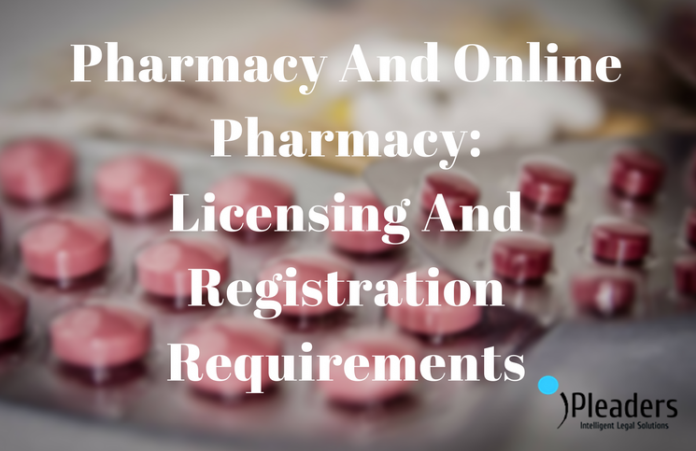Indian pharmaceuticals market is the third largest in terms of volume and thirteenth largest in terms of value. India is the largest provider of generic drugs internationally with the Indian generics accounting for 20% of global exports in terms of volume.
India enjoys an important position in the global pharmaceuticals sector. The country also has a large pool of scientists and engineers who have the potential to steer the industry ahead to an even higher level. Presently over 80 per cent of the antiviral drugs used globally to combat AIDS are supplied by Indian Pharmacy Industry.
The Indian pharmacy industry, which is expected to grow over 15% p.a until 2020, will outperform the global pharmacy industry, which is set to grow at an annual rate of 5% until the same period. The market is expected to grow to 55 billion dollars by 2020, thereby becoming the sixth largest pharmaceutical market globally, as stated by Mr. Arun Singh, Indian Ambassador to the US.
Deciding The Type Of Pharmacy
Before registering for a traditional pharmacy, a person must decide on the type of pharmacy that he wants to run.
Hospital Pharmacy
This pharmacy is set-up inside a hospital to cater to the in-hospital needs of medicine.
Standalone Pharmacy
This is the most common set-up and includes all the pharmacies that are present in a residential area.
Chain Pharmacy
Chain pharmacies are usually present in malls and are part of a chain of pharmacies.
Township Pharmacy
If a pharmacy is set-up in a township then it is acknowledged as the township pharmacy.

Registration Of Pharmacy Business
The registration of a traditional pharmacy is governed by the Indian pharmacy Act of 1948. It states that a pharmacist must register all his particulars to the state government through an official gazette. After the submission, a registration tribunal decides on the registration. Usually hospital, chain and township pharmacies are setup under private limited company constitution whereas standalone pharmacies are set up under proprietorship or partnership constitution.
Presently, Limited Liability Partnership (LLP) constitution has gained immense popularity among standalone pharmacists as it promotes the rights of partners unlike a partnership constitution.
Registration Of Tax
In India the most important tax registration includes VAT registration, therefore a pharmacist must contact the State’s Sale Tax or VAT Department for the same.
Obtaining Drug License
Before selling medicines, a drugstore must obtain drug license from the Central Drugs Standard Control Organization and State Drugs Standard Control Organization. Mainly there are two major drug license issued by the Drugs Control Organization:
- Retail Drug License (RDL)
This license is required to run a general chemist shop. To get this license you must deposit a requisite fee and must possess a degree or diploma in pharmacy from a recognized institute or university.
- Wholesale Drug License (WDL)
This license is issued to people or agencies who wish to set up a wholesale business for drugs and medicines. Unlike RDL, there are no stringent conditions to get this license.
Apart from these special requirements, there are some minimum conditions that must be followed by Pharmacists to procure any drug license:
- For a retail drugstore the minimum requirement of area is 10 square meters, and that for a common retail and wholesale pharmacy is 15 square meters.
- A drugstore must have a refrigerator and air conditioner.
- Both retail and wholesale pharmacies must have a registered pharmacist who must be present while selling the medicines.
Documents Required For Registration-
- Application forms,
- Challan of fee deposited,
- Declaration form,
- Site plan (Blue print),
- Key plan (Blue print),
- Basis of possession of the premises,
- Proof of ownership of the premises, if rented,
- Proof of constitution of the firm (Certified copy),
- Affidavit of non-conviction of Proprietor/Partners/Directors under Drugs & Cosmetics Act-1940,
- Certified copy of Regn. Certificate of Delhi Pharmacy Council/Experience Certificate of the Registered Pharmacist/Competent person and qualification certificates,
- Bio-data form,
- Affidavit of Registered Pharmacist/Competent person regarding full-time working with the firm duly attested by Notary.
- Appoint.
Legal Procedures For Setting Up An Online Pharmacy
Lately, people are shifting towards Online Pharmacies as they are most convenient method of buying medicines. Through online pharmacies customers can procure even rare medicines with utmost ease and privacy. Loads of online pharmacies have become prevalent in India but they too need to abide by certain legal procedures before being functional.
Setting Up An Online Pharmacy
Any person can set up an online drugstore only if he is registered with a licensed traditional drugstore or if it has partnered with a licensed dealer to execute the online orders.
Green Zone
According to the Indian laws, the following practices are legal for online pharmacies:
- Except over-the-counter drugs, all other drugs require a prescription.
- The contact details of an online drugstore must be of the state from which they have procured the drug license.
- The licensed drugstore has to verify and certify the delivered drugs.
Grey Zone
These practices are uncertain as per the Indian law.
- Shipping of medicines from one state to another.
- The provision of taking the money prior to delivery of medicine.
Red Zone
These practices are illegal as per Indian Laws:
- Selling Schedule H and Schedule X medicines without prescription.
- Selling medicines to minors.
- Selling medicines that are not approved by State Drug Control Organization.
- Exporting medicines without approval from the drug department of the respective country.
Must Read: Current Issues in Indian Pharmaceutical Industry
Though traditional pharmacies cater to the medicinal needs of the major population of India but still there is a need for online pharmacies that fit into the Indian Legal system because the online pharmacies create an advantageous situation for both consumers as well as pharmacists.
This’s all about Pharmacy And Online Pharmacy: Licensing and Registration Requirements for now. Did you find this post useful? Let us know in the comments section. Don’t forget to Share!
LawSikho has created a telegram group for exchanging legal knowledge, referrals and various opportunities. You can click on this link and join:
https://t.me/joinchat/J_
 Serato DJ Crack 2025Serato DJ PRO Crack
Serato DJ Crack 2025Serato DJ PRO Crack










 Allow notifications
Allow notifications



thanx for giving this information I want this type of knowledge
thanx for share with us this information startup india registration
Thank you for posting such a significant data , this article in advantageous for people who want to know about
I am 53 years old and need my own pharmacist licence. How can I get ?
HI this is Dhananjay From India Nagpur, want to start online medicine / pharmacy store , but i dint know what are the procedure are their to start, i am register license holder, can i get the details how to register how to get license procedure and all.
I want to buy medicine from a standalone pharmacy co. from India. I am from Malaysia. I asked for any credentials and they gave me a pdf copy of their certificate, Form 21 B. I don’t know how can I use with this information? Is there any regulatory bodies I can refer to, that they can validate that this pharmacy is legit?
This is in additions to what Nikieta writes, sales licenses for retail and whole sale are a state subject and state drugs control officers who are designated licensing authorities issue such licenses. firstly one needs to a Registered pharmacist or employ one for supervising retail sale and for whole sale matriculate with four years of experience in handling drugs and a degree holder with one year experience is all it needs , additionally premises should measure 10 sq mts of carpet area with proper storage arrangements. most states have online application fecility.